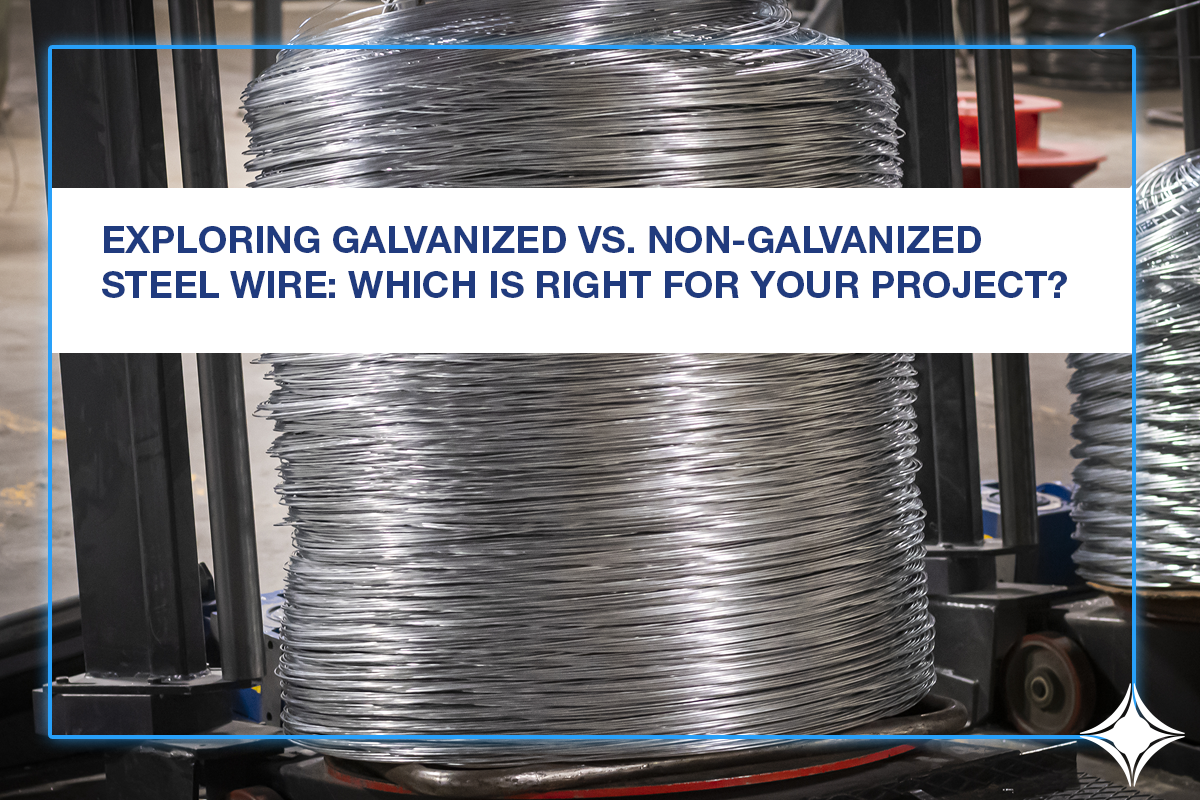Exploring Galvanized vs. Non-Galvanized Steel Wire: Which is Right for Your Project?
When selecting the right type of steel wire for your project, a key decision is choosing between galvanized and non-galvanized options. Both have distinct properties and advantages, and understanding these can guide your choice to align with your project’s needs.
Galvanized Steel Wire: Enhancing Durability
Galvanized steel wire is coated with zinc through a process known as galvanizing. This coating protects against corrosion and rust, making galvanized wire an excellent choice for projects exposed to harsh conditions. The zinc coating acts as a sacrificial barrier, corroding before the steel underneath. Its durability and corrosion resistance make it ideal for outdoor applications like fencing, wire mesh, and support cables.
Advantages of Galvanized Steel Wire:
- Corrosion Resistance: Galvanized wire resists corrosion, even in wet or corrosive environments.
- Longevity: The zinc coating extends the wire’s life, reducing maintenance and replacement costs.
- Versatility: It’s suitable for many outdoor applications due to its durability and elemental resistance.
Non-Galvanized Steel Wire: Economical Strength
Non-galvanized steel wire, or plain steel wire, doesn’t have the protective zinc coating of its galvanized counterpart. While it might not offer as much corrosion resistance, it has notable strength and versatility at a reduced cost. This wire is ideal for interior projects or where minimal exposure to moisture occurs, and extra protection isn’t necessary.
Advantages of Non-Galvanized Steel Wire:
- Economy: It’s often less expensive, suitable for budget-tight projects.
- Strength: It retains steel’s inherent strength, fit for load-bearing tasks.
- Indoor Applications: Commonly used for hanging artwork, crafts, and other indoor projects.
The choice between the two wire types depends on your project’s demands. Consider:
- Environmental Conditions: For projects exposed to moisture or adverse conditions, galvanized wire is better.
- Budget: If cost matters and corrosion isn’t a significant risk, non-galvanized might be your choice.
- Longevity: For long-term durability and low maintenance, opt for galvanized wire.
In summary, choosing between galvanized and non-galvanized steel wire depends on corrosion resistance, budget, and project demands. By evaluating these aspects, you’ll confidently pick the right steel wire for your project’s success and longevity.
